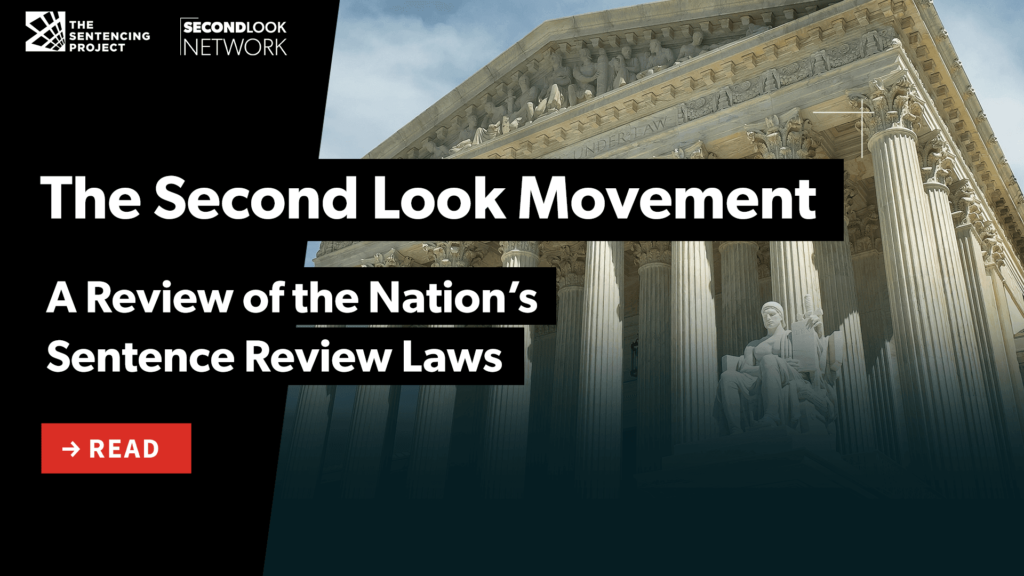
From our friends at the Sentencing Project
| Legislation authorizing judges to review sentences after a person has served a lengthy period of time has been referred to as a second-look law. Today, The Sentencing Project released a new report, “The Second Look Movement: A Review of the Nation’s Sentence Review Laws,” highlighting the evolution and growing momentum of the second look movement around the country. Findings from the report include: Legislatures in 12 states, the District of Columbia, and the federal government have enacted “second look” judicial review laws. Courts in at least 15 states have determined that lengthy sentences, beyond life without parole, are unconstitutional for youth. Three states have restricted life-without-parole sentences for emerging adults. The report provides recommendations to improve consistency and clarity in second look legislation. Research has clearly established that lengthy sentences do not have a significant deterrent effect on crime and divert resources from effective public safety programs. Nevertheless, existing parole systems are ineffective at curtailing excessive sentences in most states due to their highly discretionary nature, lack of due process and oversight, and lack of objective consideration standards. As a result, we’ve seen legislators consider and adopt second look legislation as a more effective means to reconsider an incarcerated person’s sentence in order to assess their fitness to reenter society. While much work remains, we’re thrilled to see this momentum across the country. |
| In response to the evolving second look movement, The Sentencing Project launched the Second Look Network in March 2023. The Network is composed of over 250 members representing 100 organizations, public defender offices, and law school clinics across the U.S. that provide direct legal representation to persons serving extreme sentences. Click to learn more. |

Leave a Reply